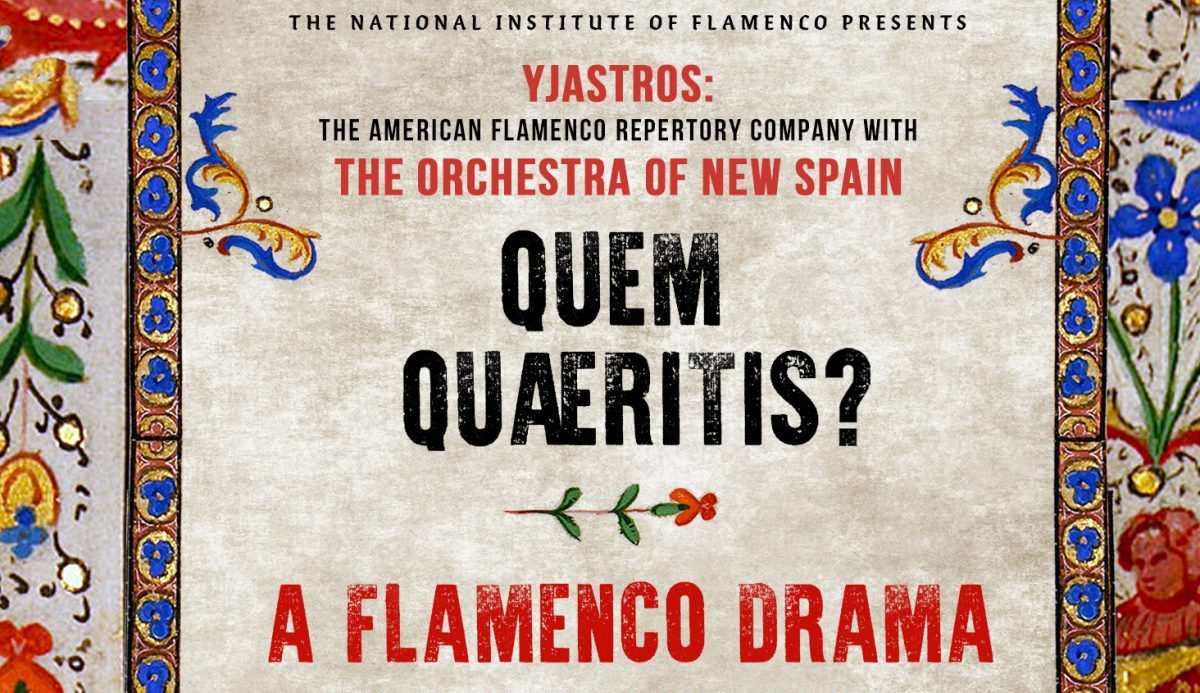Advertisement
IWCA Has Also Onboarded Meridian Institute as Secretariat to Facilitate and Manage Operational Duties and Best Practices Sharing
 SANTA ROSA, CALIF. & VILAFRANCA DEL PENEDES, SPAIN. (28 September 2021) – International Wineries for Climate Action (IWCA) has accepted 12 new applicant winery members from around the globe who have committed to tackle the severity of the climate crisis by taking immediate action to reduce their carbon emissions. These new applicants bring the total IWCA membership to more than 20 wine companies spanning 7 different countries and 5 continents.
SANTA ROSA, CALIF. & VILAFRANCA DEL PENEDES, SPAIN. (28 September 2021) – International Wineries for Climate Action (IWCA) has accepted 12 new applicant winery members from around the globe who have committed to tackle the severity of the climate crisis by taking immediate action to reduce their carbon emissions. These new applicants bring the total IWCA membership to more than 20 wine companies spanning 7 different countries and 5 continents.
Since its founding in 2019, IWCA has focused on strengthening the institution to better serve its global members and expand their impact. The organization registered as a 501(c)6 nonprofit organization, now overseen by a seven-person Board of Directors. In July of this year, it onboarded a secretariat in Meridian Institute, a non-profit consultancy with expertise in multistakeholder collaborative processes and institution-building, including in the climate, agriculture, and supply chain sustainability spaces. They are supporting daily operations, including facilitation, communication, and coordination, as well as helping execute the organization’s strategic goals.
“When Katie Jackson of Jackson Family Wines and I co-founded IWCA in February 2019 as a working group, we wanted to act and move beyond conversation around the urgency of climate change,” said Miguel A. Torres, President of Familia Torres. “Our goal was to gather the most environmentally committed wineries, and we hoped our initiative would work as a boost for other wineries to accelerate or start their carbon emissions reduction programs. It is therefore great to see that now with 12 new applicant members joining, we are more than 20 wineries worldwide. We are convinced that this will have a multiplier effect, especially in combination with the appointment as Secretariat of the renowned Meridian Institute.”
The new applicant members are:
- A to Z Wineworks (Oregon, USA): Family-owned since its founding in 2002, A to Z Wineworks’ basic premise is quality for value, focusing on Pinot Noir, Pinot Gris, and Chardonnay. Sourcing grapes from partner vineyards across the state, A to Z blends wines that present the essence of Oregon. As a certified B Corp, A to Z combines commerce with conscience, working towards sustainable health and equitable well-being for people, society, and the environment. In 2020, A to Z rebuilt their 38-year-old REX HILL brand tasting room for energy efficiency and replaced HVAC systems serving the entire operation.
- Cakebread Cellars (California, USA): Cakebread’s story begins with a piece of land, a family passionate about wine, and a community of friends who helped bring Cakebread Cellars to life in 1973. Their commitment to sustainability encompasses all parts of the organization from the vineyards to the cellar including business operations and people practices. Sustainable farming, growing and winemaking techniques further sustain the health of vineyards and the balanced interaction with surrounding wildlife, promoting diverse and balanced ecosystems. The winery employs bundled renewable electricity, captures excess heat generated from microturbines, and has installed EV charging stations. It’s not just the big initiatives or investments that define Cakebread Cellars, it’s the day-to-day details and decisions that created a culture of conservation.
- Château Troplong Mondot (Bordeaux, France): Perched on a hilltop surrounded by 43 hectares of vines sits the most welcoming estate in Saint-Emilion. Premier Grand Cru Classé of Saint-Emilion, Château Troplong Mondot offers an invitation into a slow and sustainable life, one that is tastefully complemented by distinguished wines and a highly acclaimed chef. Troplong Mondot is a dynamic farm, a working wine estate, a biodiverse terroir home to wildlife and a rural retreat with tailor-made experiences. Living in harmony with the land and reducing its impact on the environment is embedded in the soul of the estate.
- Constellation Brands (Fine Wine Portfolio, California, USA): Constellation Brands Fine Wine (U.S.) is comprised of four key wineries producing several iconic and well-known brands including Robert Mondavi, The Prisoner, To Kalon Wine Company & Schrader, to name but a few. Each of their brands and operational entities take full responsibility across four primary areas, including 1) protecting the local environment and community by promoting pollution prevention, waste minimization, and efficient use of water and energy. 2) acting as a responsible steward of water by furthering conservation efforts in partnership with industry and community partners. 3) decreasing their dependence on non‐renewable energy sources to reduce greenhouse gas emissions, and 4) preventing and reducing environmental impacts from waste generation, transportation, and disposition.
- Crimson Wine Group (California, USA): Crimson Wine Group (CWG) oversees a portfolio of benchmark wines crafted from exceptional vineyards throughout California (Pine Ridge Vineyards, Seghesio Family Vineyards, Chamisal Vineyards, Malene), Oregon (Archery Summit) and Washington (Seven Hills Winery and Double Canyon). CWG holds sustainability as a core value—it’s the right thing to do, and they know that these efforts result in higher quality wines and the preservation of estate vineyards for future generations. Their multidisciplinary Green Team consistently monitors and improves practices and implements the latest sustainable practices. Knowing glass weight is the #1 contributor of greenhouses gases in the wine industry, CWG onshored more than 90% of glass to domestic lighter weight in the last two years and reduced glass usage by 300 tons of carbon annually. They are also members of the Porto Protocol, which is a commitment to work towards minimizing the impacts of climate change.
- Gloria Ferrer (California, USA): Gloria Ferrer has produced world class sparkling wines in Sonoma since 1986. Rooted deeply in the history and heritage of Carneros, Gloria Ferrer’s iconic portfolio showcases Pinot Noir dominant wines that have become synonymous with the winery. Today, Gloria Ferrer continues its commitment to the community and environment through a regenerative model and their sustainable practices.
- Herència Altés (Catalonia, Spain): This family winery in Terra Alta is dedicated to organic viticulture and the elaboration of fresh and elegant wines. The winery works with native varieties, of which Garnacha, in all its forms, takes pride and place. They make wines in the most natural and respectful way possible, looking to maintain varietal honesty and elegance. Efforts to decarbonize include generating 80% of their energy from solar panels and planting thousands of trees in and around the vineyard. A wider project of rewilding has helped promote biodiversity and soil health on the farm.
- Hunt Country Vineyards (New York, USA): Farming for seven generations and crafting wine since 1981, the Hunts are one of the founding families of the Finger Lakes wine region in NY. They continue to be a family-run winery focused on managing their vineyards and business as part of a complete and healthy ecosystem. They produce the majority of their electricity with 348 solar panels, heat and cool with an award-winning geothermal system, provide EV charging stations to customers, and focus on soil carbon sequestration and sustainable vineyard practices and have certified some sections of the farm and vineyards organic. Hunt Country Vineyards received the 2020 Sustainability Award from the NY Wine & Grape Foundation.
- Medlock Ames (California, USA): Medlock Ames is an organic vineyard and estate winery that straddles both Sonoma County’s Alexander Valley and Russian River Valley and who is committed to farming in harmony with nature to produce wines that represent the distinct terroir of the Bell Mountain Vineyard. They maintain the vast majority of their land in its native state to protect the ten defined ecosystems that thrive here. They are also focused on using regenerative farming techniques that draw carbon from the atmosphere into the soil where it provides myriad benefits.
- Ridge Vineyards (California, USA): Nearly 60 years ago in 1962, Ridge made its first Monte Bello, and two years later its first zinfandel. Since this time, Ridge has championed single vineyard winemaking, searching California for those rare vineyards where climate, soil, and varietal are ideally matched. Ridge Vineyards is the largest grower of organically certified grapes in Sonoma County and in the Santa Cruz Mountains appellation with 379 total certified acres. All of Ridge’s vineyards in Sonoma County and Santa Cruz Mountains are Certified Sustainable by Fish Friendly Farming. Their photovoltaic panels supply 75% of the Lytton Springs winery’s electricity needs annually.
- Sula Vineyards (Nashik, India): Founded in 1999, over the last two decades Sula has grown and established itself as a pioneer, innovator, and market leader in the Indian wine industry. For Sula, sustainability is a guiding principle of life and business. They strive to be responsible stewards of their land, not just because it’s the right thing to do but also because it’s the best way to make authentic, distinctive wines. Sula generates almost 70% of its electricity through on site installations of solar panels and has driven sustainability in packaging by switching to light weight glass bottles and localizing supply chains.
- Yalumba Family Winemakers (Barossa, South Australia): Yalumba Family Winemakers is a six-generation wine industry pioneer. Established in 1849 by first generation Samuel Smith, the company is a global winemaking and distribution business with a rich and diverse portfolio of leading fine wine brands, including Yalumba, Jansz Tasmania, Oxford Landing, Pewsey Vale Vineyard and Dalrymple Vineyards. The Hill-Smith family has established five wineries in South Australia, Tasmania, and New Zealand, its own vine nursery and cooperage, and vineyards across Barossa Valley, Eden Valley, Coonawarra, Riverland, Limestone Coast, Tasmania, and New Zealand. Sustainability has been at the heart of Yalumba Family Winemakers since its beginnings, and generation after generation strives to enrich its environment, workforce, and community.
Founded by Familia Torres (Spain) and Jackson Family Wines (USA), IWCA is a collaborative working group that addresses climate change through innovative carbon reduction strategies. IWCA’s objective is for all members is to commit to becoming Net Zero by 2050 across Scopes 1-3, ensuring constant reductions to meet intermediate targets by 2030. By joining the United Nations’ Race to Zero campaign, IWCA has become a facilitator and champion within the wine and agricultural industries to build momentum and support for immediate solutions that help move wine producers and vineyard owners closer to becoming climate positive. IWCA will publish an annual report in October 2021 showing progress on its member wineries’ GHG emissions status and goals, which is required by Race to Zero.
IWCA is open to any wine company who views climate change as a serious threat. The organization has two membership categories (Gold and Silver) with requirements that include becoming Net Zero by 2050 at the latest, completing an annual third-party audited greenhouse gas emissions inventory that encompasses Scopes 1-3, powering winemaking operations by renewable energy, and demonstrating a constant reduction of CO2 emissions from a baseline inventory year in line with the overarching Net Zero target. Visit https://www.iwcawine.org/ to learn how your winery can apply to join this organization.
About IWCA
Founded in 2019 by Familia Torres of Spain and Jackson Family Wines of California, International Wineries for Climate Action (IWCA) was created by two leading wine families deeply rooted in environmental stewardship with a passion to preserve the world’s great wine heritage in the face of climate change. IWCA is a working group with a mission to take collective action to decarbonize the global wine industry, underscored with goals for member wineries to become Net Zero by 2050 across Scopes 1-3, ensuring constant reductions to meet intermediate targets by 2030 in alignment with the United Nations’ Race to Zero campaign.
IWCA is open to wineries who recognize that climate change is the most significant threat to the wine community and are guided by the urgency for strategic action to accelerate innovative solutions. In 2019, IWCA received the 2019 Wine Enthusiast Social Visionary Wine Star Award for its leadership in galvanizing collaborative climate action across the wine industry. Visit www.iwcawine.org to learn more.
Advertisement








